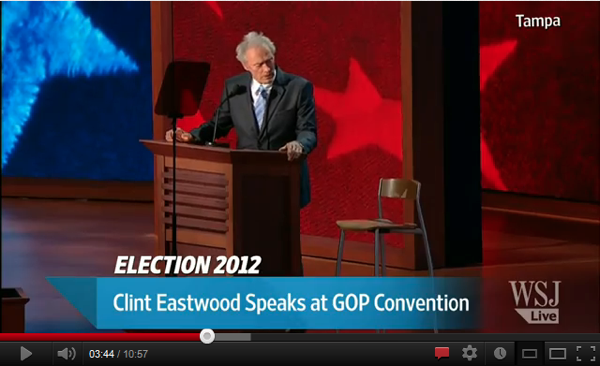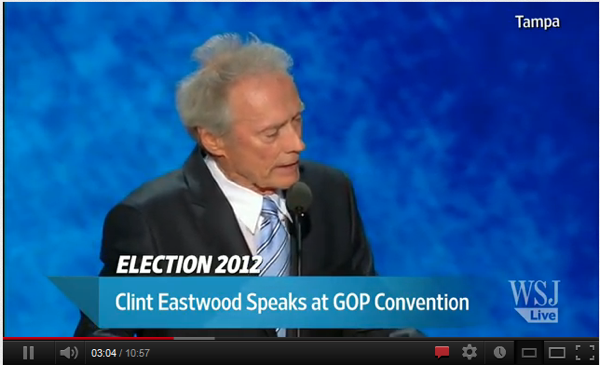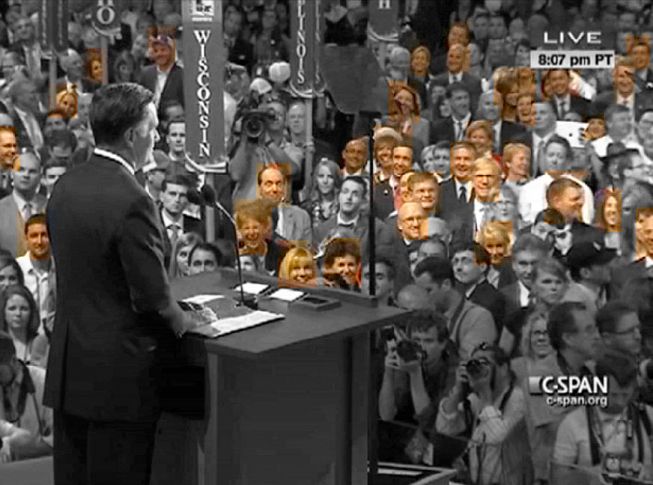Notes
The Real Romney Keynote: Eastwood Renders the Invisible Invisible

How do you make the candidate you’re endorsing invisible? You give life and breadth to an Imaginary Obama on stage at the Republican National Convention. “Mystery guest” Clint Eastwood, scratching his head and ad-libbing a talk to an empty chair as if it were Obama managed, in less than 10 minutes, to wipe Romney to an insubstantial shade.
Eastwood appeared to blame Bush for millions of unemployed, gave Obama credit for keeping Gitmo open and for changing his mind about trying terrorists in “downtown New York City.” Osama bin Laden wasn’t mentioned, but Eastwood noted that Obama was against war he ended in Iraq and felt Afghanistan was a war worth fighting and escalating while Romney wanted to bring them home “tomorrow morning.” Misstating Romney’s position on Afghanistan wasn’t the least of it: Eastwood didn’t think attorneys should be president (Romney has a Harvard Law degree) and gave an overwhelmingly ambivalent endorsement for Romney (“possibly” and “maybe” time to elect Romney).
What may have gone unnoticed in watching the Hollywood icon go back and forth with furniture last night is that Eastwood did what nearly every headlining star of the RNC convention had done so far: speak to positions and a person that may not be the real Romney, don’t necessarily represent him or his views, and offered the candidate little more than ambivalent support. Apropos to Eastwood and the Josey Wales graphic that opened his presentation, it was the Wild West: every speaker for themselves.

People can fault Eastwood for his age or Romney’s handlers over vetting, but marshaling his still formidable creative and directorial instincts, Clint merely (if unintentionally) blew the visual lid off the charade. As of this morning, there should be a new verb in Websters. Eastwooding: to render the invisible invisible.
— Karen Hull and Michael Shaw
(screenshots: WSJ.com)


Reactions
Comments Powered by Disqus